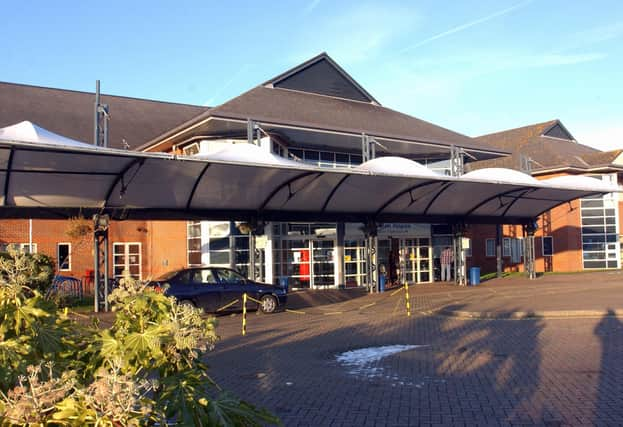Fewer hospital appointments at St Richard’s and Worthing as the impact of covid continues


But hospital bosses say they are working hard to tackle the backlogs and keep supporting patients.
Health think tank the Nuffield Trust has warned that cancellations and fewer referrals during the pandemic mean people with treatable conditions may be getting worse.
Advertisement
Hide AdAdvertisement
Hide AdNHS Digital data shows 770,045 outpatient appointments were booked at St Richard’s Hospital and Worthing and Southlands Hospitals in the year to March – a 20 per cent drop from the previous year, when 963,215 were scheduled.
This was in line with the picture across England, where appointments fell by 18 per cent to 101.9 million.
Around 66 per cent of appointments booked at Western Sussex Hospitals Trust, which ran the hospitals before the trust merged with Brighton and Sussex University Hospitals Trust (BSUH) in April this year, went ahead. But 24 per cent were cancelled by the trust.
The remainder were either not attended or cancelled by the patient.
Advertisement
Hide AdAdvertisement
Hide AdAcross England, 12.6 million appointments were cancelled by hospitals in 2020-21 – 16 per cent more than the year before, and equating to 12 per cent of all booked slots.
Sarah Scobie, deputy director of research at the Nuffield Trust, said the number of outpatient appointments partially recovered in the summer, however ongoing infection control measures meant the NHS was still struggling to see as many patients as it did pre-pandemic.
She said: “In response to the cancellation of other services and less referrals into the health system from GPs, the NHS managed to shift many outpatient appointments to remote consultations to ensure that those patients most in need could be seen while protecting them from the continuing risks of Covid-19.
“The knock-on effect of these cancellations is that more people have been left waiting longer for appointments to diagnose and treat illness, impacting their day to day lives and potentially making treatable conditions worse.”
Advertisement
Hide AdAdvertisement
Hide AdShe added the waiting list – already at 4.5 million patients before the pandemic – could grow “significantly further” if cancellations are made this winter.
The University Hospitals Sussex NHS Foundation Trust, which now runs both hospitals, said the pandemic brought ‘unprecedented challenges’ and staff were working hard to make sure all patients are seen as quickly as possible.
Gethin Hughes, chief operating officer, said: “The pandemic led to higher waiting times across the country and unprecedented challenges for all healthcare services. We know long waits and cancellations are distressing for patients and we work hard to minimise these. Throughout we have prioritised those with the most urgent clinical needs.
“We have since March fully restored our elective programme, alongside additional clinics and operations during evenings and weekends. We have continued to use virtual appointments and telephone consultations throughout the pandemic to minimise disruption to patients’ care and we have also worked in partnership with local independent sector providers to treat as many people as possible.
Advertisement
Hide AdAdvertisement
Hide Ad“Our skilled and committed teams continue to work extremely hard to provide the care our patients need during, what remain, very busy and challenging times and we are grateful for the ongoing support and understanding of our patients.”
The Government said it had provided “record” investment to the NHS for frontline care and to increase efficiencies.
A Department of Health and Social Care spokeswoman said: “The pandemic has put enormous pressures on the NHS, but we are committed to ensuring people get the treatment they need.
“We have provided record investment to tackle the backlog, including £2 billion this year and £8 billion over the next three years, which will deliver an extra nine million checks, scans, and operations for patients across the country.
“At the same time, the NHS is deploying more efficient, innovative ways of working and the latest technology to deliver more appointments and treatments.”